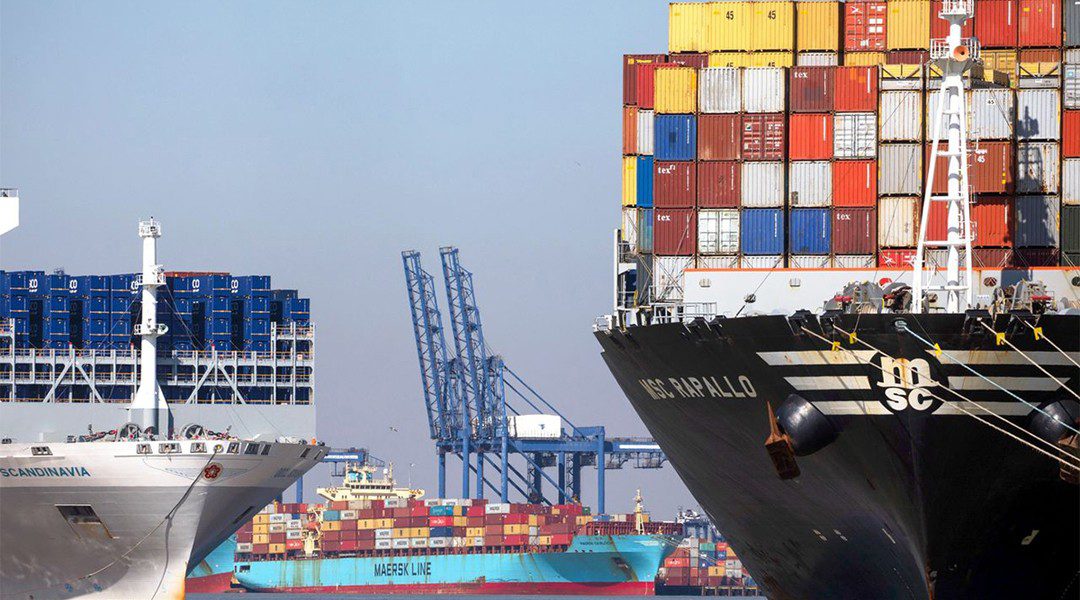Car carrier operators in Europe are facing problems as a result of sanctions being imposed
on Russia since its invasion of Ukraine in February 2022.
Long-haul operators, meanwhile, were seeing buoyant vehicle demand across the Atlantic
and from Asia, reports Journal of Commerce, citing industry executives.
The short trip RoRos have struggled to find alternative markets to offset the loss of vehicle
tonnage to and from Russia and Belarus. “Car manufacturers have stopped transporting vehicles to Russia, both via ships and rail. In addition to this, some …original equipment manufacturers have pulled out of Russia and abandoned the manufacturing plants they had put up there,” Bjorn Gran Svenningsen, sales and marketing director at United European Car Carriers (UECC), said.
UECC is a 50:50 joint venture between privately held Sweden-headquartered Wallenius Lines and Japan’s NYK Lines.
The shipments to Russia would normally include luxury BMW and Audi vehicles made in Europe and transported by rail through Russia to China. “Volumes to Russia have obviously dried up and alternative routes have been sought, but with little luck I believe,” Svenningsen said.
For Finnlines,which is focused on Baltic and North Sea shipping, the largest impact has been the total stoppage of shipments to Russia by the Volkswagen group, Staffen Herlin, Finnlines’ head of group marketing, said. In March Volkswagen also stopped vehicle production at its two plants in Russia.
“As we ceased our direct sailings to St Petersburg’s Bronka port in early March, everything else related to automotive also stopped, including trucks, chassis, components, etc.,” Herlin said, noting that the company had been “quite busy rearranging the fleet”.
Finnlines had previously included Russia in its North Sea and Baltic system, enabling
connections to Spain, Belgium, UK and Germany, using four vessels with a total cargo capacity of 16,000 lane metres.” Finnlines had also just taken delivery of three new hybrid ro/ro ships when the invasion occurred.
Herlin said that Finnlines has compensated for the loss of Russian cargo “by intensifying
sales related to Finland and adding to the cargo base between the other European countries.”
“We do see a market change from Russia to other markets by vehicle makers, but this is not that easily done due to different market-specific model specifications,” Svenningsen told Journal Of Commerce.
Herlin also noted that, while Finnlines had seen an elevated level of westbound vehicle
flows in Europe, the company was now seeing some indications of a slowdown due
to production bottlenecks and the effects of inflation.
“There has been no benefit at all to European short-sea shipping because we are plagued
with sudden plant shutdowns due to missing parts and chip shortages,” he said. “Consequently, there are no vehicles to transport.”
Meanwhile, volumes on Siem Car Carriers’ dedicated trans-Atlantic service for Volkswagen
had remained strong in both directions, Tim Rufus, Siem’s general manager for North American and Asia, told Journal of Commerce, noting that “while Volkswagen has suffered from supply chain issues related to the Ukraine situation, it has continued to prioritize the North America-Europe trade”.
Ocean carrier Wallenius Wilhelmsen said in a quarterly review released in May that total
vehicle exports from Japan rose by 11.7% during Q1, compared with the previous
quarter.
Vehicle exports from South Korea rose by 3.7% quarter on quarter, while exports from Europe increased by 8.3%. But Q1 exports from China dropped by nearly 16 % due to the
impact of Covid-19 related lockdowns.






